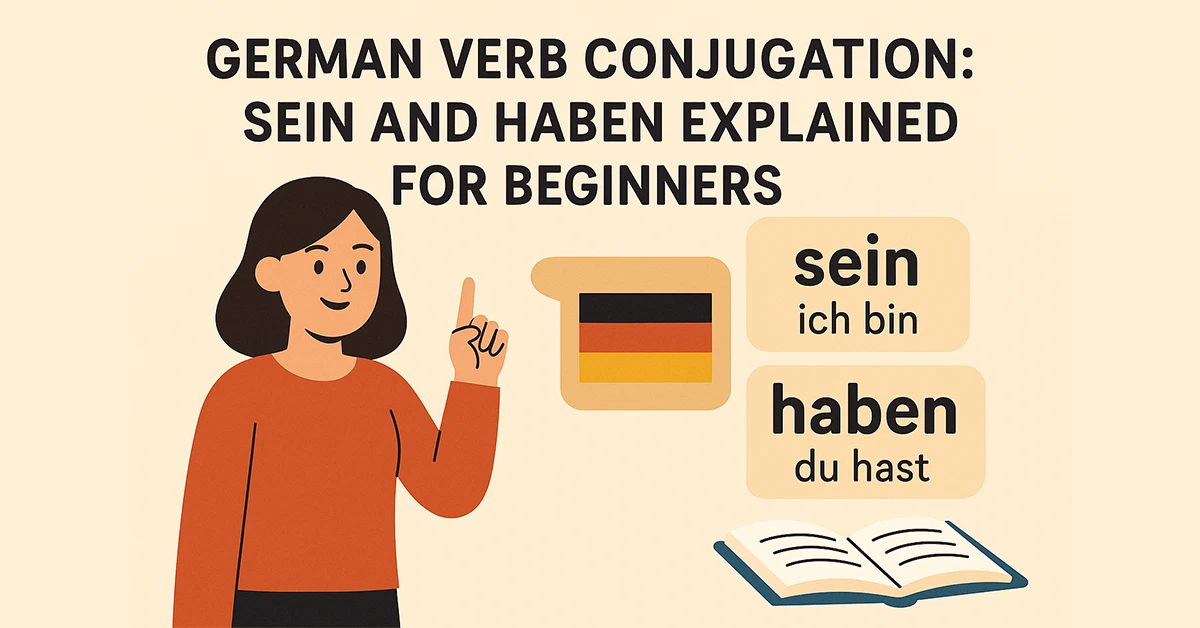sein and haben
-

German Verb Conjugation: sein and haben for Beginners
Learn how to conjugate the essential German verbs sein and haben in all tenses. This beginner-friendly guide covers present, past, and perfect forms with examples.

Learn how to conjugate the essential German verbs sein and haben in all tenses. This beginner-friendly guide covers present, past, and perfect forms with examples.